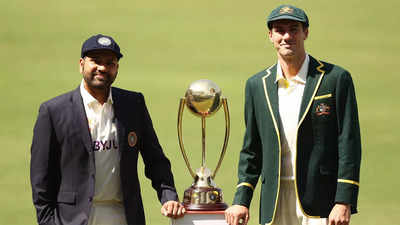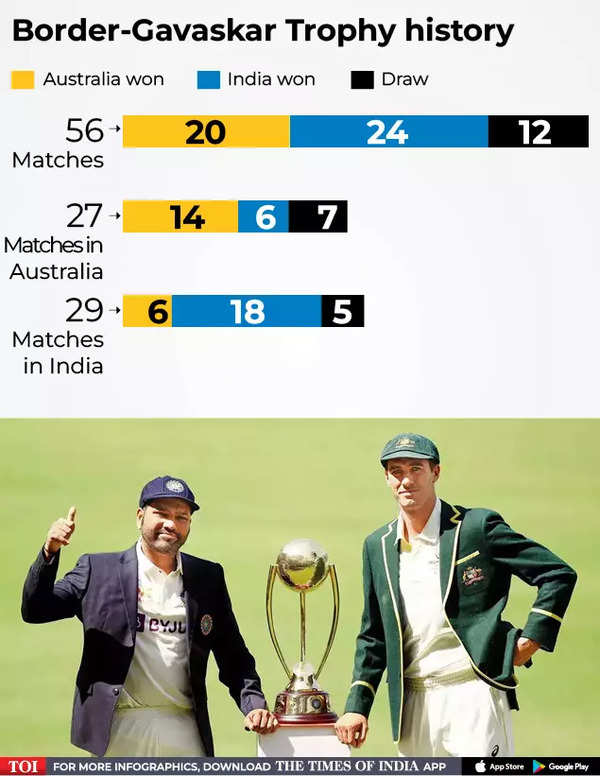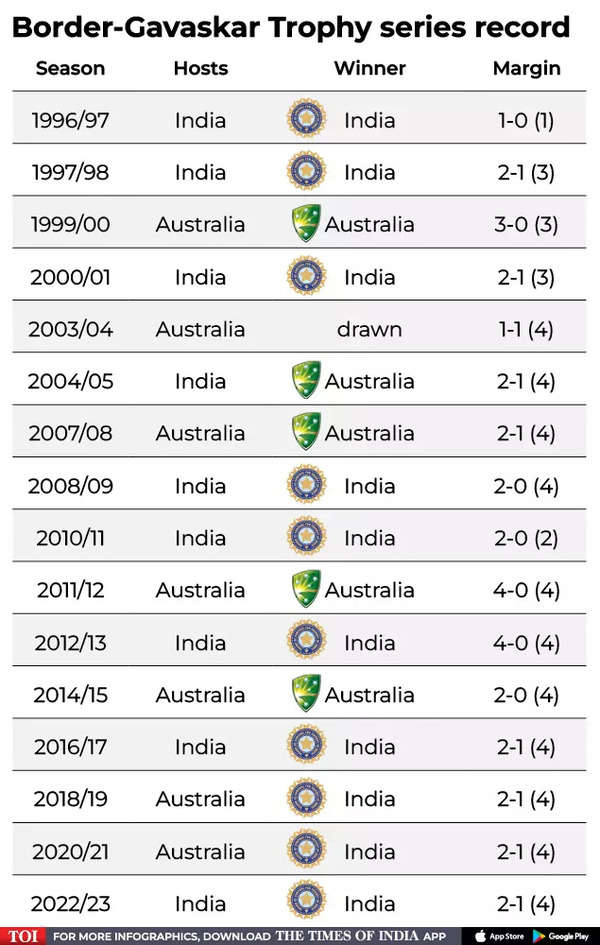[ad_1]

NEW DELHI: As Team India gears up for the highly anticipated five-match Border-Gavaskar Trophy (BGT) starting November 22 in Perth, comparisons between this epic rivalry and the legendary Ashes series between Australia and England are inevitable.
While the Ashes boasts a history stretching back to 1882, the BGT, which began in 1996, has quickly become one of cricket’s most fiercely contested and closely followed encounters.
Historical Perspective: BGT vs Ashes (Since 1996)
While the Ashes has dominated cricket discussions for over a century, since the introduction of the BGT, there has been an interesting shift in dynamics. If we focus on the period from 1996 — when the BGT began — the numbers tell a compelling story.
- The Ashes: Since 1996, 15 Ashes series have been played, with Australia winning eight, England securing five, and two ending in draws. Australia hold the upper hand, continuing their traditional dominance.
- BGT: In contrast, India have outperformed Australia in the BGT, winning 10 of the 16 series, while Australia has managed five victories, and one series ended in a draw. Notably, India have won two series in Australia (2018-19, 2020-21) and are aiming for a historic third consecutive away win this time.
Match Statistics: BGT vs Ashes
In terms of overall matches played, the difference between the two rivalries is stark, mainly due to the Ashes’ long history:
- The Ashes: Across 142 years, 345 Tests have been played in the Ashes, with Australia winning 142 matches to England’s 110. This shows a clear edge for Australia over the long term.
- BGT: The Border-Gavaskar Trophy has seen 56 Tests since 1996, with India winning 24 matches and Australia claiming 20 victories. India’s more recent dominance reflects their evolution as a force in Test cricket.

Recent Trends: The Last Five Series
A more relevant comparison for the current players is how the two rivalries have played out in the last decade.
- BGT: India have won four consecutive BGT series (2016-17, 2018-19, 2020-21, 2022-23), with two wins at home and two in Australia. Australia’s last series win came in 2014-15 on home soil.
- The Ashes: Since England’s last series win in 2015, the Ashes have been less one-sided. Australia won two of the last five series (2017-18, 2021-22), and two ended in draws (2019, 2023), allowing Australia to retain the urn.
Dominance in Away Series
Away victories often define the strength of a team, especially in Test cricket.
- BGT: India’s two away series wins in Australia (2018-19, 2020-21) are significant, while Australia have won just one away series in India, in 2004-05. This shows India’s resilience and growing strength in overseas conditions.
- The Ashes: Australia have not won a series in England since 2001, and England have struggled in Australia, with their last win there coming in 2010-11. Australia’s hold over the Ashes urn has been strengthened by their dominance in home conditions.

BGT’s Rising Stature
While the Ashes remains iconic due to its deep-rooted history, the Border-Gavaskar Trophy has risen to prominence as one of the most fiercely contested rivalries in world cricket. In recent years, India’s dominance in the BGT, especially with back-to-back series wins in Australia, has led some to argue that the BGT now rivals or even surpasses the Ashes in terms of competitiveness and importance.
For Australia, the upcoming BGT series presents a chance to reclaim the trophy at home, while for India, the series is a crucial step towards securing a spot in the World Test Championship final.
IND have what it takes to challenge this AUS team in upcoming #BGT | #beyondtheboundary
[ad_2]
Source link


